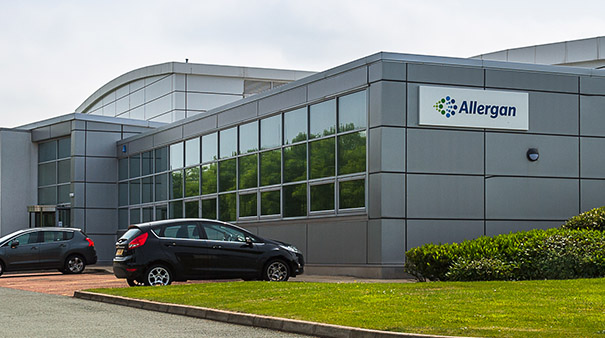Allergan says it will shed two drugs as AbbVie takeover looms

Allergan has confirmed that it will divest experimental inflammatory bowel disease therapy brazikumab and marketed drug Zenpep ahead of its $63 billion acquisition by AbbVie.
The company announced the plans in its second-quarter results filing, whilst reporting a 0.8% decline in revenues to $4.1 billion – slightly ahead of analyst forecasts – and a loss of $1.8 billion resulting from a hefty impairment charge caused by delays in clinical studies and a drop in the expected value of some R&D projects.
Allergan said it had decided to divest brazikumab and Zenpep – a treatment for pancreatic lipase deficiency – regardless of whether getting rid of them is required for clearance of the AbbVie takeover by antitrust regulators such as the Federal Trade Commission (FTC).
That seems prudent, given the FTC seems to be raising the bar for antitrust approvals in pharma at the moment – witnessed by Roche’s much-delayed $4.3 billion Spark takeover and Bristol-Myers Squibb’s forced divestiture of psoriasis Otezla to seal its $74 billion acquisition of Celgene.
The brazikumab decision comes just a few months after Allergan announced it was starting two major clinical research programmes for the interleukin-23 inhibitor in Crohn’s disease and ulcerative colitis, but this is no big surprise given that AbbVie has just claimed approval for its own IL-23 inhibitor Skyrizi (risankizumab) in plaque psoriasis.
Skyrizi is already being tipped as a future blockbuster and is in phase 3 development for ulcerative colitis and Crohn’s disease. Meanwhile, AbbVie’s big-selling TNF inhibitor Humira (adalimumab) also makes a sizeable chunk of its $20 billion annual sales from the inflammatory bowel disease category.
Zenpep meanwhile is a direct competitor to AbbVie’s Creon product for pancreatic lipase insufficiency, a condition that prevents patients digesting food normally. Allergan recorded $133 million in sales for its product in the first half of the year, all from the US market, while Creon made $484 million in the same period.
Allergan chief executive Brent Saunders said the company achieved “steady growth” in the second quarter, driven once again by wrinkle treatments Botox and Juvederm, up 4% to $974 million and 11% to 323 million, respectively. There was also a strong contribution from antipsychotic drug Vraylar (cariprazine) which grew 72% to $196 million.
The company joined many other pharma companies in lifting its annual sales guidance for the year, saying it now expects to post $15.4-$15.6 billion, up from its earlier prediction of $15.1-$15.4 billion.
It’s also expecting some important pipeline news during the remainder of the year, topped by an FDA decision on oral CGRP receptor antagonist ubrogepant for the acute treatment of migraine, which is due in December.













